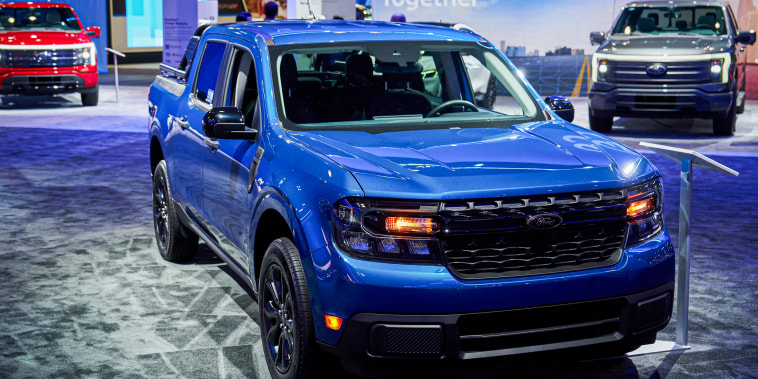Ford Delays All-Electric SUV to Focus on Hybrid Vehicles by 2030
The decision to delay the release of Ford’s all-electric SUV has generated mixed reactions among industry experts and consumers alike. Ford’s strategy to shift its focus towards offering hybrid vehicles across its lineup by 2030 raises important considerations about the future of electric and hybrid vehicles in the automotive market.
One key factor influencing Ford’s decision is the rapid growth of the hybrid vehicle segment. With advancements in technology and increasing environmental awareness, hybrid vehicles have gained significant popularity among consumers looking for more sustainable transportation options. By prioritizing the development and production of hybrid vehicles, Ford aims to capitalize on this trend and meet the changing preferences of consumers.
Additionally, the decision to delay the release of the all-electric SUV demonstrates Ford’s commitment to ensuring a smooth transition towards electric mobility. As the automotive industry undergoes a significant transformation towards electrification, Ford’s strategic approach highlights the importance of careful planning and gradual adaptation to new technologies. By focusing on hybrid vehicles in the short term, Ford can better prepare for the eventual shift towards all-electric vehicles in the future.
It is also worth noting that Ford’s decision aligns with its broader sustainability goals. By offering a range of hybrid vehicles across its lineup, Ford can reduce its overall carbon footprint and contribute to a more eco-friendly transportation industry. This move reflects Ford’s commitment to environmental stewardship and positions the company as a leader in sustainable mobility solutions.
However, some critics argue that delaying the release of the all-electric SUV could put Ford at a disadvantage in the long run. As other automakers invest heavily in all-electric vehicles and expand their electric vehicle portfolios, Ford risks falling behind in the race towards electrification. The growing demand for electric vehicles, coupled with government incentives and stricter emissions regulations, could create challenges for Ford if it does not accelerate its electric vehicle efforts.
In conclusion, Ford’s decision to delay the release of its all-electric SUV in favor of focusing on hybrid vehicles by 2030 reflects a strategic approach to navigating the shifting landscape of the automotive industry. By prioritizing hybrid technology in the short term, Ford can leverage market trends, meet consumer preferences, and prepare for a future that is increasingly electric. While there are potential risks associated with this decision, Ford’s commitment to sustainability and innovation positions it well for success in a rapidly evolving market.


























